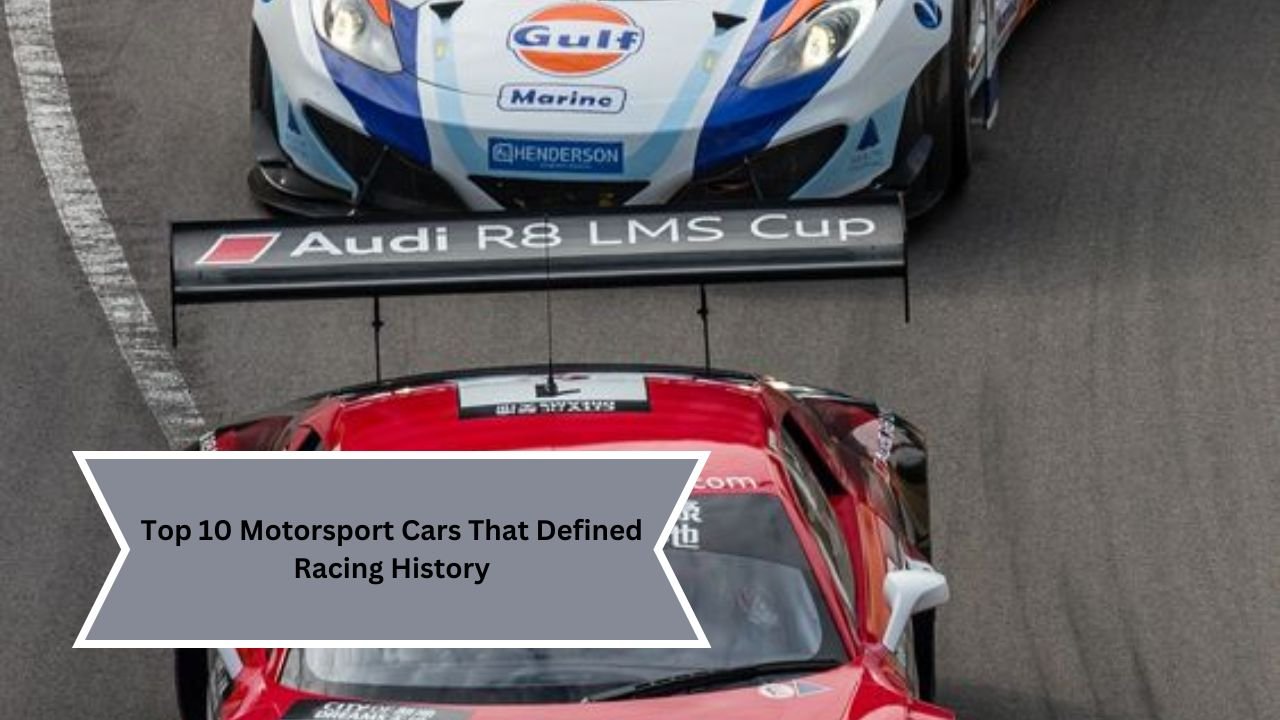Motorsport has a rich and thrilling history, characterized by innovation, speed, and the relentless pursuit of victory. Throughout the decades, certain cars have not only dominated the racetracks but also transformed the very nature of racing itself. Here’s a look at ten iconic motorsport cars that have left an indelible mark on racing history.
1. Ford Model T
While not a racing car in the modern sense, the Ford Model T played a pivotal role in the early automotive era. Introduced in 1908, it revolutionized transportation and set the stage for future motorsport developments. Its affordability and mass production techniques made cars accessible, laying the groundwork for the racing culture that would soon follow. The Model T also inspired early motorsport events, encouraging drivers to push the limits of speed and performance.
2. Mercedes-Benz W196
The Mercedes-Benz W196 was a formidable competitor in the 1950s Formula One circuit. With its sleek, aerodynamic design and innovative technology, including a lightweight chassis and fuel injection system, the W196 dominated the sport. Juan Manuel Fangio drove this car to victory in the 1954 and 1955 seasons, securing multiple championships and solidifying Mercedes-Benz’s reputation as a leader in motorsport engineering.
3. Ferrari 250 GTO
The Ferrari 250 GTO, produced from 1962 to 1964, is one of the most sought-after cars in motorsport history. With its powerful V12 engine and stunning design, it became an icon of the GT racing scene. The 250 GTO won numerous championships, including the FIA World Sportscar Championship, and remains a symbol of Ferrari’s racing pedigree. Its combination of beauty and performance has made it a favorite among collectors and enthusiasts alike.
4. Porsche 917
The Porsche 917 is renowned for its stunning performance in endurance racing, particularly at the 24 Hours of Le Mans. With its flat-12 engine and aerodynamic design, the 917 achieved speeds that were previously unimaginable. The car secured Porsche’s first overall victory at Le Mans in 1970 and 1971, establishing the brand as a powerhouse in motorsport. Its legacy is immortalized in films and car culture, making it a staple in racing history.
5. Audi Quattro
The Audi Quattro revolutionized rally racing in the 1980s with its groundbreaking all-wheel-drive system. Introduced in 1980, the Quattro combined powerful turbocharged engines with a robust chassis, enabling it to tackle a variety of terrains. This innovation not only improved traction and stability but also set a new standard for performance in rally racing. Audi’s success in the World Rally Championship with the Quattro solidified its reputation for engineering excellence.
6. McLaren MP4/4
The McLaren MP4/4, designed by the legendary Gordon Murray, is often hailed as one of the greatest Formula One cars of all time. Powered by a Honda turbocharged engine, the MP4/4 dominated the 1988 season, winning 15 out of 16 races. Its lightweight design and superior aerodynamics allowed drivers Ayrton Senna and Alain Prost to achieve unprecedented levels of success. The car not only defined an era in F1 but also showcased the potential of technological advancements in racing.
7. Ferrari F2004
The Ferrari F2004 is another iconic Formula One car that left a significant mark on the sport. Driven by Michael Schumacher, the F2004 is celebrated for its speed, reliability, and innovative design. It won 15 out of 18 races in the 2004 season, helping Schumacher secure his seventh world championship. The car’s success can be attributed to its aerodynamic efficiency and powerful V10 engine, showcasing Ferrari’s dominance during the early 2000s.
8. Nissan GT-R R32
The Nissan GT-R R32, affectionately known as the “Godzilla,” transformed the world of touring car racing. Launched in 1989, it featured advanced technology, including all-wheel drive and an innovative ATTESA system for improved handling. The R32 dominated the Group A racing scene in the early ’90s, winning multiple championships and earning a reputation for its performance. Its legacy continues to influence the GT-R lineage and remains a beloved figure among car enthusiasts.
9. Honda RA272
The Honda RA272 marked a significant turning point in Formula One history as the first Japanese car to win a Grand Prix. Driven by Richie Ginther, the RA272 secured victory at the 1965 Mexican Grand Prix. Its advanced engineering and the introduction of the Honda V12 engine showcased Japan’s growing influence in motorsport. The RA272 not only paved the way for future Japanese manufacturers but also highlighted the importance of innovation and performance in racing.
10. Toyota TS050 Hybrid
The Toyota TS050 Hybrid is a modern marvel in endurance racing, showcasing the integration of hybrid technology in motorsport. Competing in the FIA World Endurance Championship, the TS050 combines a powerful turbocharged V6 engine with electric motors to enhance performance and efficiency. Its success at the 24 Hours of Le Mans, where it achieved multiple victories, exemplifies the future of racing. The TS050 represents a shift towards sustainability while maintaining the thrilling spirit of competition.
Conclusion
The world of motorsport is filled with extraordinary machines that have not only shaped the races they participated in but also influenced automotive engineering and culture. From the early days of the Ford Model T to the cutting-edge technology of the Toyota TS050 Hybrid, these ten cars have left a lasting legacy, inspiring generations of racers and enthusiasts. Each vehicle tells a story of innovation, passion, and the relentless pursuit of speed, reminding us why we celebrate the art of racing.

